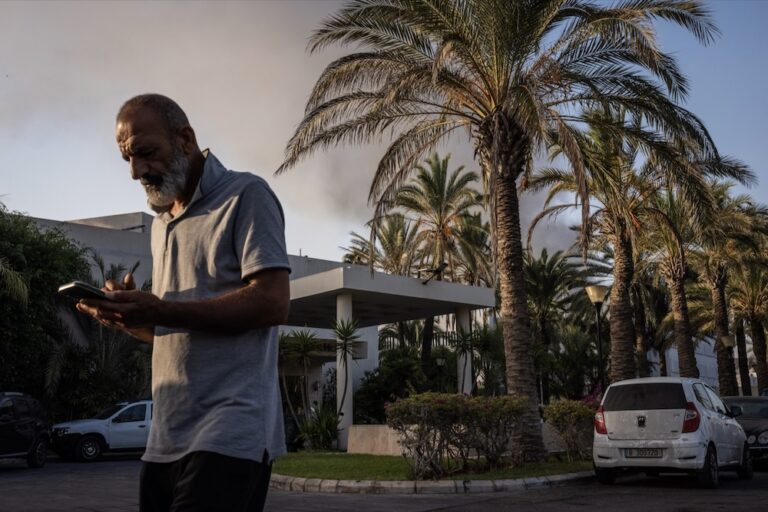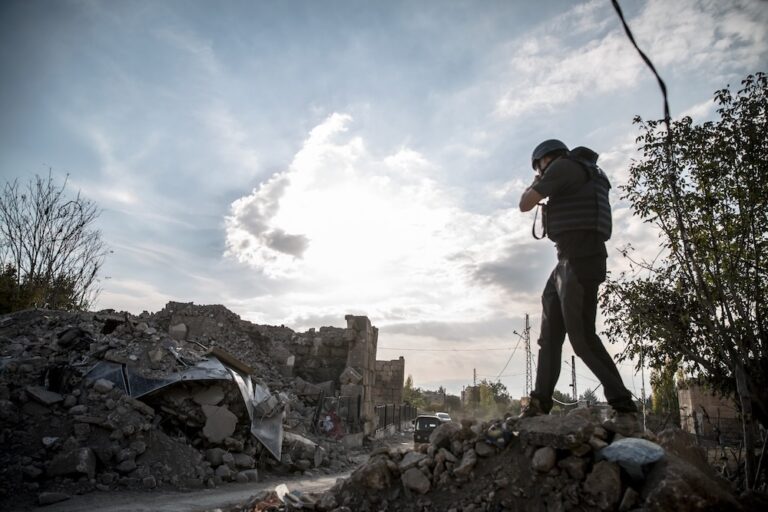(IFJ/IFEX) – The following is an IFJ media release: IFJ Condemns Targeting of Journalists in Lebanon as Violence against Media Rises The International Federation of Journalists (IFJ) today condemned the targeting of journalists in Lebanon after several photographers and reporters were injured and media outlets forced to shut down after receiving threats from groups from […]
(IFJ/IFEX) – The following is an IFJ media release:
IFJ Condemns Targeting of Journalists in Lebanon as Violence against Media Rises
The International Federation of Journalists (IFJ) today condemned the targeting of journalists in Lebanon after several photographers and reporters were injured and media outlets forced to shut down after receiving threats from groups from both sides of the conflict.
“We are calling on all political parties to end their attacks on media workers,” said IFJ General Secretary Aidan White. “Not for the first time the IFJ insists that all journalists in the Lebanon, including those working from starkly different perspectives, are unarmed non-combatants and must be treated accordingly. It is intolerable that journalists become vulnerable targets in this conflict simply for doing their jobs.”
At least two reporters and three photographers have been injured in Beirut in recent days covering the conflict between the government and Hezbollah. Other photographers have been detained by police or had their equipment broken. The pro-government media company Al Mustaqbal was forced to take its television and radio broadcasts off the air and suspended publication of its newspaper after threats from militias and a mortar attack on its newspaper building.
According to the Lebanese Photographers Syndicate, photographers Wadi Shlink, Asad Ahmed, working for newspaper Sada al Balad, and photographer Mahmmod Altawil were injured in attacks while covering the conflict earlier this week. The Lebanese Editors’ Syndicate said Sada al Balad reporters Diana Skeni and Ali Halawa were also injured in attacks.
Both unions called on the government forces and Hezbollah to recognise journalists’ civilian status and their right to work in safe and secure conditions.
The IFJ called for an immediate end to all attacks on journalists and supported calls from the unions and Lebanese press freedom organization Maharaat to ensure journalist safety, independence and their right to work.
The IFJ represents over 600,000 journalists in 120 countries worldwide.


